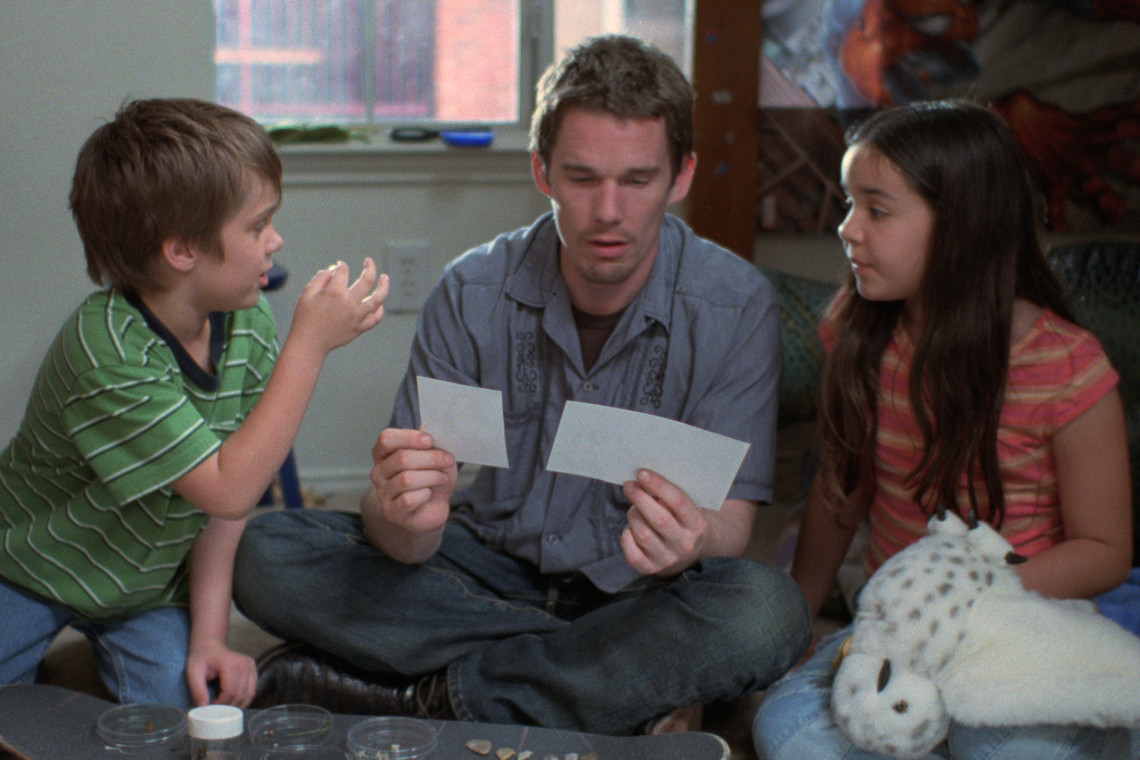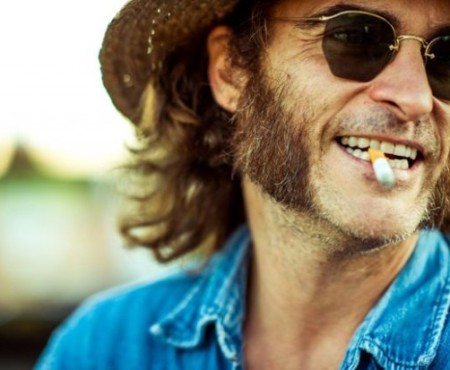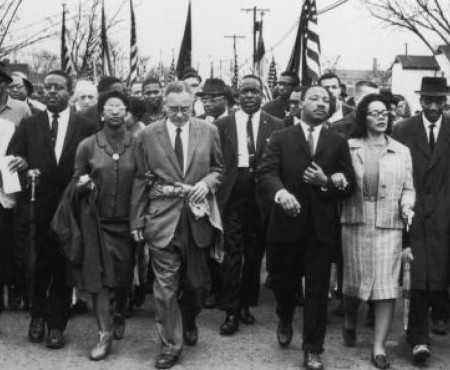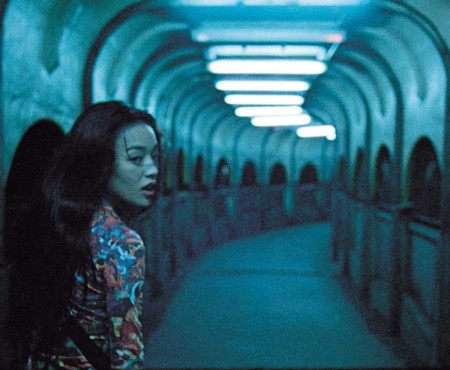Every week, With a Little Help from Our Friends highlights the best pieces of writing on film, television, and literature published around the Internet. Please share if you like what you see.
For your reading enjoyment …
“Chris Rock Pens Blistering Essay on Hollywood’s Race Problem: “It’s a White Industry”” by Chris Rock
I was probably 19 when I first came to Hollywood. Eddie Murphy brought me out to do Beverly Hills Cop II and he had a deal at Paramount, so I remember going through the gates of the Paramount lot. He’s in a Rolls-Royce, and he’s not just a star, he’s the biggest star in the world. Don Simpson and Jerry Bruckheimer’s office was in the same building as Eddie’s office, and they would come to work every day with matching cars. Some days it would be the Porsches, and the next day it would be Ferraris. I was like the kid in A Bronx Tale. I got to just hang around when the biggest parts of show business were happening. I was only there a couple of weeks, but I remember every day Jeffrey Katzenberg would call Eddie Murphy — I don’t even know if Eddie was calling him back — but it was like, “Jeffrey Katzenberg called again.” “Janet Jackson just called.” “Michael Jackson called.” It was that crazy. I’ve still never seen anything like it. I had a small part in the movie, but my dream was bigger than that. I wanted to have a convertible Rolls-Royce with a fine girl driving down Melrose blasting Prince.
“It’s OK to Hate-Watch ‘Peter Pan’ (Even Though No One Really Hate-Watches Anything)” by Mike Ryan
There are at least two Internet writers I “hate-read” on occasion. I do not enjoy their writing styles or their opinions, yet I read. I legitimately hate-read them. I read, then I stew quietly, thinking, This guy has a lot of nerve. It’s not an enjoyable experience and it’s certainly not healthy. I don’t make these opinions public because my feelings are embarrassing. It’s not a good trait in a human being to actively display feelings of hate against people who (A) have shown no real aggression in return or (B) if they have, to give them that satisfaction. It’s all very ugly.
“Classic Soundtracks Are a Trailer’s Greatest Weapon” by Adam Bellotto
Nostalgia is a powerful thing (don’t believe me? Ask Don Draper). If no one felt any pangs of remembrance for cool old movies where people shot proton torpedoes into thermal exhaust ports or giant lizards ruined a theme park test tour, nobody would have given last week’s Star Wars: The Force Awakens or Jurassic World trailers a second thought (also, if nobody was nostalgic for them, there wouldn’t be a The Force Awakens or a Jurassic World in the first place).
“Boyhood maturing into Oscars favourite with US critics’ prize wins” by Ben Child
Richard Linklater’s coming-of-age drama Boyhood confirmed its position as an Oscars frontrunner after securing prizes from critics’ associations in Los Angeles and New York at the weekend. Linklater’s film won four prizes at the LA Film Critics Association awards, including best film, best director, best actress for Patricia Arquette and best editor. The New York Film Critics Online largely followed suit, with best film, best director and best supporting actress (Arquette) prizes.
“25 Best Movie Posters of 2014″ by Darren Franich
“Mister Babadook: An oral history of 2014’s most terrifying movie prop” by Scott Meslow
“If it’s in a word, or in a look, you can’t get rid of the Babadook.” That’s the prophetic warning — delivered by, of all things, a children’s pop-up book — in The Babadook, a low-budget Australian film that towers over every other horror movie released in 2014. The Babadook follows Amelia (Essie Davis), a grieving widow with an enormously troubled young son (Noah Wiseman). One night, when Noah can’t sleep, he asks her to read him a children’s book he discovered on his shelf: Mister Babadook, a bizarre pop-up story about a monster who torments a mother and son after he gains access to their house
“The 30 Most Important Sex Scenes in Movie History” by Bilge Ebiri
Sex scenes have a rich, varied tradition in the cinema. They’ve gone through periods of near-ubiquity, as well as scarcity. In the 1960s and ’70s, they were often used for shock value and to shake viewer complacency. In the 1980s, they were commodified in startling ways. These days, they tend to be relatively rare. But sex scenes have also been important — whether in the development of the cinematic idiom, or sparking controversy, or just plain helping break new ground in depicting intimacy. Some of the scenes on this list are seminal moments in film history (for better and for worse). Some are flash points that wound up changing our culture in interesting ways. Some came to represent nefarious, exploitative trends. And some are just unforgettable scenes that informed what came after them. It’s a mixed bunch. Here are the 30 Most Important Sex Scenes in Movie History.
“Dream On: An Interview with Julie Taymor” by Kiva Reardon
Julie Taymor deals in dreams. Her directorial works—which include the Tony Award-winning Broadway production of The Lion King (1997), her critically acclaimed feature film debut Titus (1999), and the Oscar-winning Frida (2002)—aren’t tied to one genre, form, or even temporality. By ignoring the logical and literal in favour of the experiential and surreal, she seeks to create worlds that echo of our own, but never directly mimic it. It is precisely this quality that has served her well–especially when it comes to her takes on Shakespeare. In a sea of overdone adaptations by the iconic playwright, Taymor’s versions stand out for their original blending of time periods and detailed costuming, teasing out the timeless quality of the plays’ themes.
Stalled Beat: Mia Hansen-Løve’s Eden by Lindsay Jensen
Midway through Mia Hansen-Løve’s sprawling, electronic dance music–themed Eden, French DJ Paul (the perpetually doe-eyed Félix de Givry) meets a Chicago DJ with whom he has been corresponding. “Man, you look young,” the man states bluntly. “Yeah, I get that a lot,” Paul bashfully replies. The exchange feels like a playful nod on Hansen-Løve’s part, since the Paul we meet as a young teenager in the film’s 1992-set opening sequence is the same Paul we say goodbye to at the film’s close in 2013—with nothing to differentiate him save for the hint of a 5-o’clock shadow that appears in the mid-2000s. In fact, Paul appears radically ageless throughout Eden.
THE 25 BEST FILMS OF 2014: A VIDEO COUNTDOWN by David Ehrlich




















